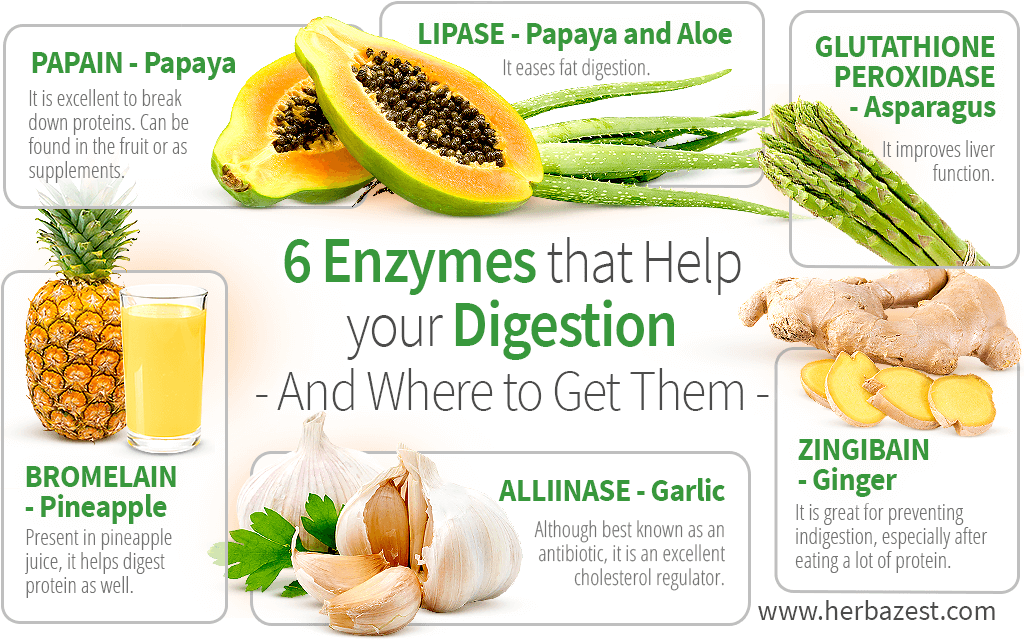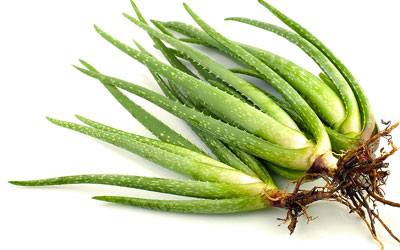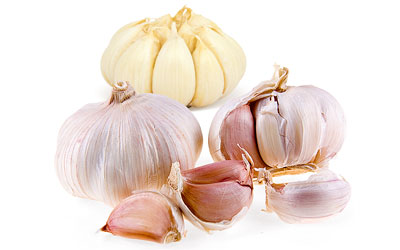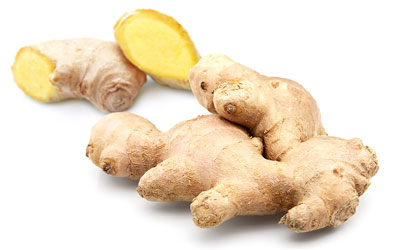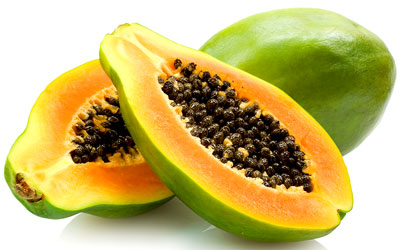Since digestion disturbances often come with pain and discomfort, taking care of one's digestive health is very important. Consuming proper amounts of nutrients and expelling waste products in a timely fashion are essential for overall health. However, people with disturbed digestion may need to make adjustments to their diet, for example with the help of enzymes, to make their digestion smooth and painless. Read on to discover the most important enzymes, inlcuding their sources, that play a role in digestive health.
1. Papain
Papain is an excellent enzyme for breaking down proteins, which it accomplishes with the help of water. The latex hidden inside papaya fruit (Papaya carica) is one of the best sources of this enzyme. As such, include plenty of papaya in your diet to optimize digestive functions and keep the system running smoothly. Alternatively, papain supplements are also a common form of intake.
2. Bromelain
Bromelain is in fact a mixture of enzymes that, just like papain, make protein digestion easier. It is commonly found in pineapple (Ananas comosus), and it has a long history of use as a natural remedy for treating indigestion in Central and South America. It is derived specifically from the stem and the juice of the pineapple fruit.
3. Alliinase
Alliinase is an enzyme in garlic (Allium sativum) that catalyzes the conversion of alliin to allicin, and it is responsible for the strong smell that comes out after chopping the bulb. Allicin offers many different benefits, although it is mostly known as an antibiotic and immune system booster. Although not often associated with digestion, allicin is nonetheless useful for it since it also acts as a cholesterol regulator.
4. Zingibain
Zingibain is abundant in ginger (Zingiber officinale) and known for breaking down proteins, facilitating a rapid and smooth digestion. In particular, it breaks down proteins in milk, which results in curdling. In addition, zingibain can also be used as a meat tenderizer.
5. Glutathione Peroxidase
Glutathione peroxidase is an enzyme found in asparagus (Asparagus officinalis) that works by metabolizing omega-6 fatty acids. Some studies have shown that asparagus helps speed up liver function, although this research is tenuous and has only been done with animal models. Nevertheless, it suggests that the enzyme has some digestive benefits.
6. Lipase
Lipase aids the body's fat digestion. This enzyme is most commonly found in papaya and aloe (Aloe vera), and this is partly why both herbs are considered excellent supplements for optimizing digestive health. A person whose pancreas functions normally will probably not have any change in how the digestive system functions, but those who suffer from a deficit of lipase could well reap the benefits of consuming these herbs.
While enzymes for digestion are made by the body, some individuals can benefit from boosting their enzyme intake from food. Because these enzymes help break down food, they can ease gastrointestinal problems, like indigestion, bloating, and acid reflux, gently, yet effectively.
Sources
- Cellular and Molecular Life Sciences, Carica papaya lipase (CPL): An emerging and versatile biocatalyst. Biotechnology Advances, 2006
- Journal of Dairy Science, Purification, characterization, and milk coagulating properties of ginger proteases, 2011
- Journal of Dietary Supplements, Effect of Asparagus falcatus on acetaminophen toxicity in mice: a comparison of antioxidative effect with N-acetyl cysteine, 2008
- National Institutes of Health, Lipase Test
- Oregon State University, Garlic and Organosulfur Compounds
- University of Maryland Medical Center, Bromelain Supplements


